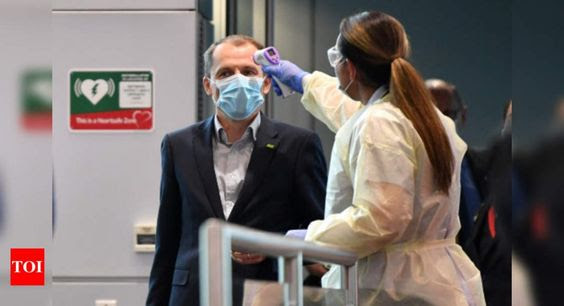Matthew Milner grew up in New Zealand, and is now pursuing his M.B.A. and M.A. in Education at Stanford University. Richard Ngata, of Māori descent, is a pediatric registrar/resident at Starship Children’s Hospital in Auckland.
Life in New Zealand is almost back to normal. While the United States has seen more than half a million deaths from covid-19 — with a death rate of more than 160 per 100,000 of population — New Zealand has lost only 26 people at a rate of 0.53 per 100,000.
Two months ago, one of us, Richard, went to a New Year’s festival with more than 12,000 fellow revelers — something barely imaginable in the United States, where most concerts are online-only. Meanwhile, teachers, including Matthew’s parents, have been instructing in person since May without requiring masks or social distancing measures.
Why has New Zealand fared so much better? Many people argue that these differences stem from New Zealand’s geographic advantages, and there is no doubt that being an island nation has helped. But other island nations, including Britain, have had very different outcomes.
There is a deeper reason: Manaakitanga.
While New Zealand hasn’t always been great at recognizing or celebrating our indigenous Māori culture, campaigning by Māori advocates has helped to ensure that Māori culture is now well-incorporated into society. Manaakitanga is one of many customs of the Māori people that are now taught in New Zealand schools. It holds that others have importance equal to, and even greater than, one’s own.
Manaakitanga is about understanding the power of the collective. It derives from the Māori term “mana,” which is the spiritual life force and energy that every living thing possesses. When you honor the mana of others, your own mana will increase through the respect you have earned. When you acknowledge these connections, you understand that your freedom as an individual is only as strong as your place in the community.
This community approach underpins many aspects of life in New Zealand. We provide health care to anyone who needs it. Our gun safety laws focus on keeping the community safe. And manaakitanga is one of four key values the Teachers Council for New Zealand wants teachers to focus on in the classroom.
But never has the importance of manaakitanga to our society been more evident than at the start of the covid-19 pandemic. Last March, when New Zealand went into full lockdown, people
This strict lockdown lasted six long weeks, and while there was political pushback, the “team of 5 million,” as Prime Minister Jacinda Ardern calls New Zealanders, stayed home and stamped out the virus.
New Zealanders were willing to give up many of their individual freedoms and face personal hardship for the benefit of the community. People lost income and jobs, and the closed borders separated families (and still does). As a doctor, Richard saw much of this firsthand: Seeing patients became more complicated, and his father, an air force electrician, couldn’t work and wondered whether he would still have a job when the lockdown finished.
Still, people found ways to connect and support each other. The lesson of the coronavirus is that an individual approach is not sufficient and that it takes a team for us all to gain true freedom. The Māori proverb “He waka eke noa” expresses these sentiments clearly: We are all in this canoe together.
The response to the pandemic has been very different in the United States, as Matthew has experienced personally; there has been greater resistance to lockdowns, social distancing and even wearing masks. Some attribute this to a difference in leadership. While then-President Donald Trump was playing down the virus, Ardern was running daily broadcasts alongside the nation’s director-general of health to clearly communicate the latest updates and restrictions. The central message: “Stay Home, Stay Safe, Be Kind.”
Yet there’s another crucial difference: People in New Zealand listened and were willing to put their community above themselves, while many in the United States were not, even when experts and officials began to speak out about the seriousness of the pandemic.
Much of the resistance to covid-19 warnings can be attributed to American individualism. But the past year has also seen the country embrace change. The U.S. government temporarily extended unemployment insurance and halted evictions, alongside other significant measures of support for millions of struggling Americans. And the United States has begun to reckon with its racist past and present, making strides to better support marginalized groups.
Like New Zealand, the United States is a place of great diversity, steeped in its own way in indigenous and immigrant cultures. Our hope is that the United States can apply the lessons of the pandemic to all areas of society — and, in doing so, embrace manaakitanga.
As the proverb goes: He waka eke noa.



Comment here